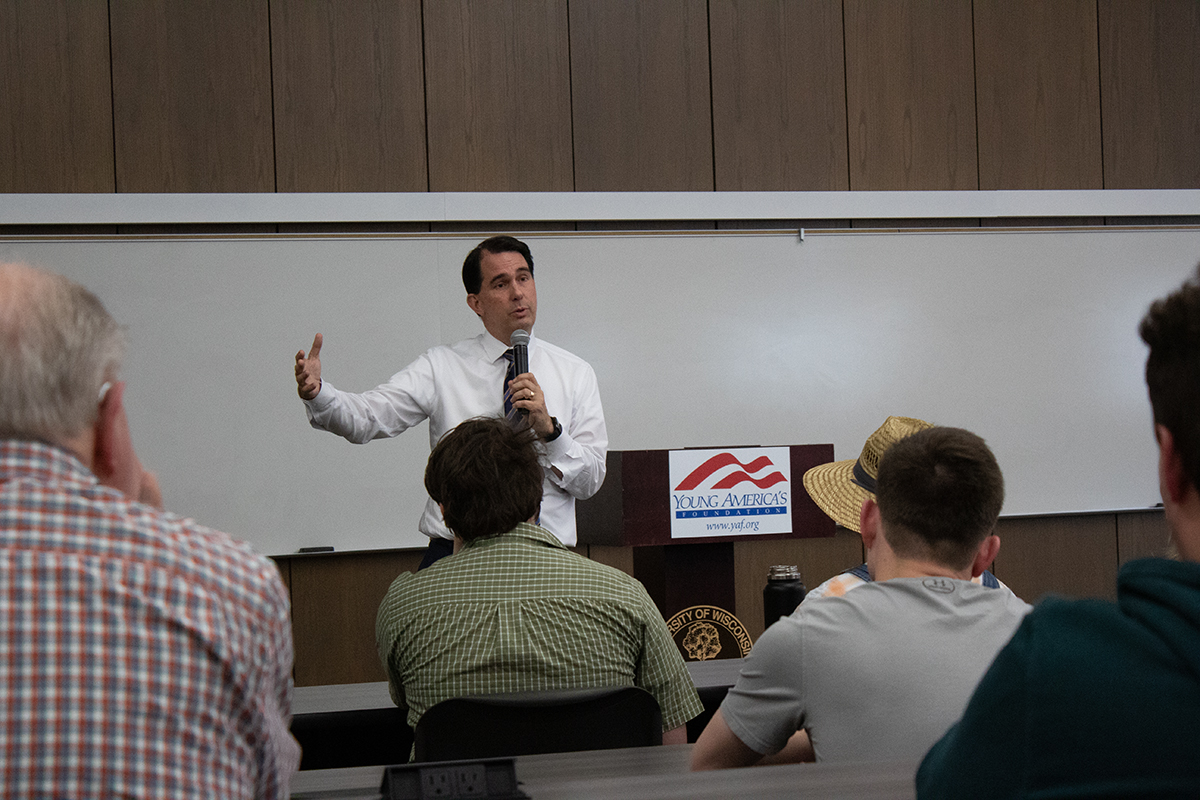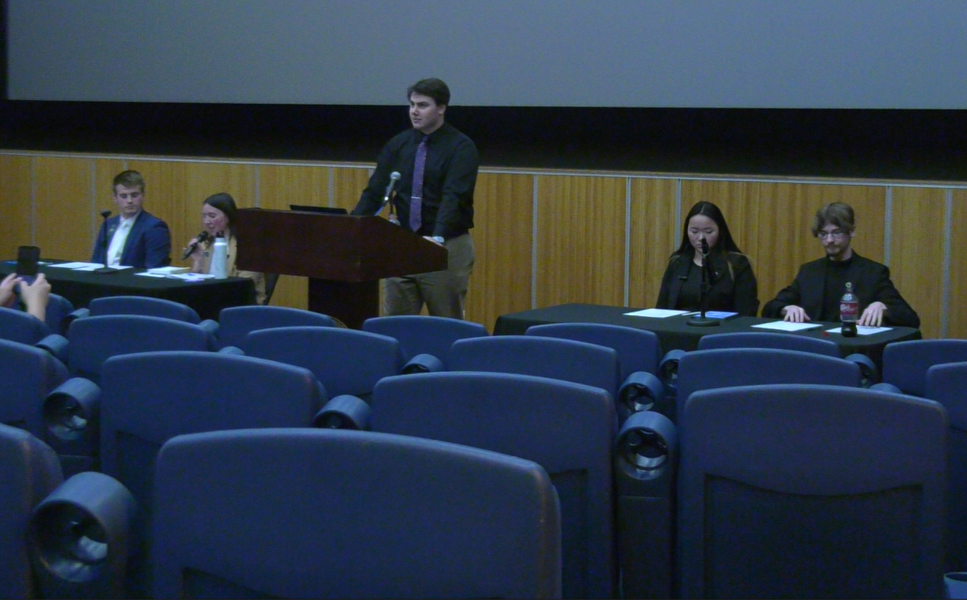“You don’t know me, son, so let me explain this to you once: If I ever kill you, you’ll be awake. You’ll be facing me. And you’ll be armed.”
Those words from the pilot episode of 2003’s “Firefly” hung next to UW-Stout professor James Miller’s door in mid-September on a poster. Days later, the poster was taken down by the campus police chief. Now, the words of Captain Mal Reynolds from the show — and Miller — are appearing on the international level as a case of First Amendment rights violations.
The reason for the removal of the posters, according to publications from thefire.org, was because the poster referred to killing and that it posed a threat to Stout’s campus.
Miller says the police chief also threatened him with criminal charges of “disorderly conduct” if he posted any similar poster. In response, Miller placed a new poster. Days later he was informed that this poster was a threat as well due to it mentioning violence; this required him to meet with the Interim Dean of the College of Arts, Humanities and Social Sciences.
Miller then contacted the Foundation for Individual Rights in Education, an organization devoted to defending individual rights for professors and students across
the country.
“It wasn’t an issue of the university’s power anymore,” Miller said. “It was an issue of First
Amendment rights.”
Senior Assistant to the Chancellor for Affirmitave Action Teresa O’Halloran, said there is not a “real policy that exists about employee postings” for UW-Eau Claire, but a rule regarding postings exists on a statewide level, deemed by the Board of Regents.
The UW system policy states that “No person may erect, post or attach any notices, posters, pictures or any item of a similar nature in or on any building or upon other university lands except on regularly established bulletin boards, or as authorized by the provisions of this code or by the
chief administrative officer.”
However, O’Halloran noted that there is no specific policy as to what content can go on a ‘regularly
established’ space.
“Because the chancellor here has not said, ‘I can ban posters due to (the above statute),’ he’s basically authorizing that a professor could post anything outside their door,” she said. “However, I’ve had a few concerns raised before and dealt with them on a case-by-case basis — but those didn’t rise to the level of the police
getting involved.”
By Oct. 4, FIRE reported that Stout’s chancellor had cancelled the meeting with Miller and reversed the decision to censor the poster.
“They treated this poster as a threat,” Miller said. “The police chief’s job should really enforce what the poster said. I’m not armed and authorized to take anyone down, but the person who took it down is authorized to do so. I don’t want anyone out there who doesn’t get it being the one who makes a choice (and is
authorized) to kill.”
Eau Claire senior Cameron Stoeger said he sees nothing wrong with
Miller’s actions.
“It was well within his rights to put up that poster,” he said. “Within an intellectual institution, there should be a broader sense of what’s allowed.”
Miller said that through the chain of events, the whole ordeal has proven to be “slightly funny.”
“I’m a big fan of humor — that’s why I put things on my door,” he said. “And it’s funny that people once in a while just don’t get it …. We wear our hearts on our sleeves and our souls on our doors.”






